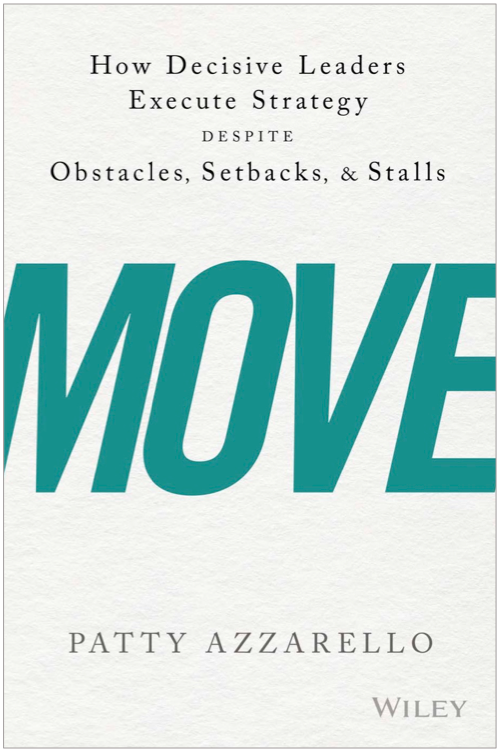Why are we doing this?
As a business leader, one of the things I always marveled at was how much crap creeps into a business operation over time.
Processes go out of date (and become void of any usefulness) yet they remain, not as necessary processes — but as habits.
New chaotic and reactive activities crop up in lieu of sensible infrastructure. Misunderstandings cause stalls, re-work and duplication. And silos block useful communication
And all this happens when everyone is generally motivated to get along!
(Mis-aligned, politicized organizations have a whole raft of additional obstacles that block growth, but that’s a topic for another day.)
1. Question the habits
Habit is a very powerful force that makes organizations get stuck doing things the same way over and over again.
Habits become ingrained (good and bad ones). And then everyone gets too over-busy to think about how there might be a better way to do something.
One of most useful things I repeatedly did in my career was to step outside of the current business’s tendencies — and really observe, question, and then improve them.
Learn to ask and investigate:
- Why do we do this?
- Who uses this? And what do they use it for?
- Have we asked them if it is useful?
- Would something else be better?
- How much does this cost? and Why? What do we get?
I was in a turn-around situation once where the new head of manufacturing reduced expenses by almost 30% by simply asking vendors, “What do we get for this cost? and why can’t it be less?”
The old business had got out of the habit of questioning and the vendors just kept charging and charging.
Which brings me to the next point.
2. Be the new guy
Think about when you start a new job…
The first thing you need to do is to figure out what is going on.
You’re the new guy. So you need to observe and learn. You ask a lot of questions and you do an assessment. You consider what is working and not working, and you identify stuff that is missing or broken.
Why not pretend to be the new guy in your current job?
If you came in with a fresh perspective and looked at your organization’s structure, priorities, processes and habits — without any familiarity or fondness or apathy toward any of any of them — which ones would genuinely impress you? And which ones would embarrass you, and make you think, “man, that needs to change”?
I would try to put the “new guy” hat on at least twice a year and pick a few habits or programs to look at with a fresh eye. Sometimes I would bring a colleague in to do an informal assessment because I was just too familiar with the status quo.
Do something to get that fresh, new-guy perspective so you make sure that you don’t let as much sand creep into the gears of your operation over time.
3. What stupid stuff are we doing?
This is a staff topic I highly recommend.
I used to have a staff meeting about once a year where the key topic was “let’s talk about what stupid stuff we are doing”.
This was always a fun and fruitful discussion, where people got permission to look outside their current pressures and demands and “tell it like it is”. We could all step back consider ways to improve how we did business.
Most times I’ve done this the group naturally moved from listing bad habits to solving them.
But even if your team gets into a negative, non-productive, complaining, downward spiral you can still get a valuable outcome. You just need to say, “ok, now let’s decide which of these we want to change, and define what we are going to do”.
Defining a desired outcome and an action plan to improve something gets you back on highly positive ground — and you fix something important.
I recommend doing this as an open discussion – no powerpoints! You’ll get a better discussion and more insight if you let your group really talk.
See also: stop having status meetings which are an excellent incubator for stupid things teams do.
I lead this conversation with management teams regularly, and we always leave with a concrete action plan to remove obstacles to growth. (And these are things that are typically driving everyone crazy anyway).
You can’t avoid entropy
If you don’t spend time proactively seeking and destroying chaos, and choosing habits and processes to improve, your business growth will suffer. As a leader, you need to always focus on at least one improvement in your organization that will help you scale and become more efficient.
Was this useful?
If you found this article useful, please help me share it with others and encourage them to subscribe to this Blog for free.
Patty Azzarello is an executive, best-selling author, speaker and CEO/Business Advisor. She became the youngest general manager at HP at the age of 33, ran a billion dollar software business at 35 and became a CEO for the first time at 38 (all without turning into a self-centered, miserable jerk)
You can find Patty at www.AzzarelloGroup.com, follow her on twitter or facebook, or read her book RISE…3 Practical Steps for Advancing Your Career, Standing Out as a Leader, AND Liking Your Life.





